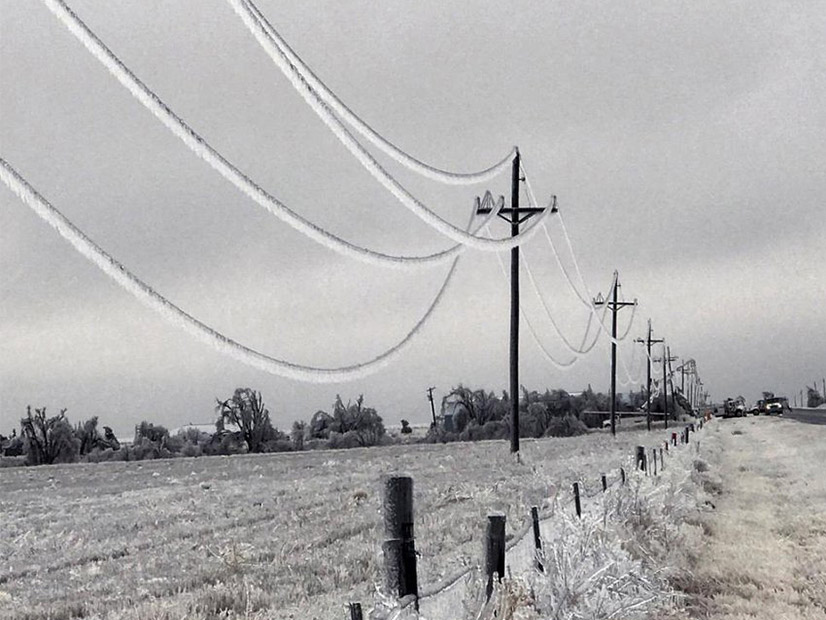
A new report from think tank OurEnergyPolicy (OEP) identifies reliability as a key priority for legislators, regulators and other stakeholders working to decarbonize the North American bulk power system and prepare for a future of stresses to the grid brought on by climate change.
The Guiding Principles for Sound Energy Policy report, released on Tuesday, is the product of multiple stakeholder meetings hosted by OEP earlier this year; the organization decided to publish the paper to “highlight points of consensus and various points of view by participants of these discussions.”
OEP’s release includes seven guiding principles aimed at policymakers working on the transition to a carbon-free BPS, written to be broad rather than “an exhaustive list of principles [that] would be dilutive and inconsistent with the core objective of this initiative.” Those chosen for inclusion are considered “fundamental [values] … of elemental importance … that should be prioritized in all energy policies.”
Reliability ‘Cannot Be Compromised’
OEP’s list of principles starts with reliability, which the organization says, “cannot be compromised.” Citing the winter storms that racked Texas in February, leaving thousands without power for days and bringing the Texas grid close to collapse, the paper recommends that grid planners make the BPS “reliable and resilient enough” to withstand severe weather and cyberattacks, while also maintaining the ability to recover when disaster does occur.
“The public expects electricity with a flip of a light switch. The energy system must have enough generation capacity, transmission capability and operational flexibility to keep up with the pace of consumer demand and to prepare us for every manner of deliberate and natural threats,” OEP says.
Also included in the list — which OEP emphasized was not ranked in any particular order — were principles such as affordability, equity and inclusion, decarbonization, respect for science, integrated policy and a technology-neutral approach.
By affordability, the report means that all Americans must be able to access the energy they need to participate in society, regardless of their income or economic status. Noting that American consumers “want to know they have the financial means to afford” necessities including electricity, OEP suggests policymakers explore options for keeping energy affordable, such as “market-based approaches to lower technology costs [and] government approaches that can assist lower-income Americans.”
Equity and inclusion refers to identifying communities likely to suffer more negative impacts from climate change and the clean energy transition, and granting those communities a voice in the debate over how to address those impacts. Making the process more inclusive can also help policymakers with the integrated policy principle, which refers to “understanding that our energy systems are interconnected and achieving one goal may affect our ability to achieve others.”
For example, a mandate to convert a vehicle fleet from fossil fuels to electric engines must take into account the carbon impact of the resource used to generate the vehicles’ electricity. Inviting a wide range of voices can help policymakers spot the full implications of their proposals.
The last two principles — respecting sound science and technology neutrality — are also complementary. The first means that policies should “be evidence-based and in harmony with the best scientific studies and data,” while the second stresses that policymakers “avoid picking technology ‘winners and losers’ in the energy sector” by allowing “ideas and technological innovation to compete in a free market.”
“Science and policy must work in tandem to allow for the best possible outcomes, and science-based policy must be rigorously evaluated and held to a high standard,” the report says.
Lawmakers Urge Federal Clean Energy Support
Among those who participated in this year’s meetings were Sen. Lisa Murkowski (R-Alaska) and Congressman Paul Tonko (D-N.Y.), both of whom contributed their own list of guiding principles for members of Congress and stakeholders that were included in OEP’s report.
Murkowski recommended that policymakers:
-
-
- focus on the future, but make sure goals are achievable;
- keep the attributes of energy in mind;
- focus on bipartisanship;
- follow the regular order process; and
- be ready to make reasonable compromises.
-
Tonko’s recommendations were more specific; among his nine enumerated principles were to “set scientific targets for greenhouse gas neutrality by mid-century” and to “deliver a just and equitable transition” by investing in communities that face the greatest risk of damage from pollution and climate change, while helping workers and communities that depend on traditional energy industries find new methods of support.
In addition, Tonko urged that federal policy be made to complement work already done by state and local governments, businesses and individuals, while not “penalizing entities that have taken early action.”
“Federal climate action must create steady, credible, and politically durable policies, send strong investment signals, and deliver long-term certainty to allow for proper planning and implementation while minimizing compliance costs,” Tonko said.



